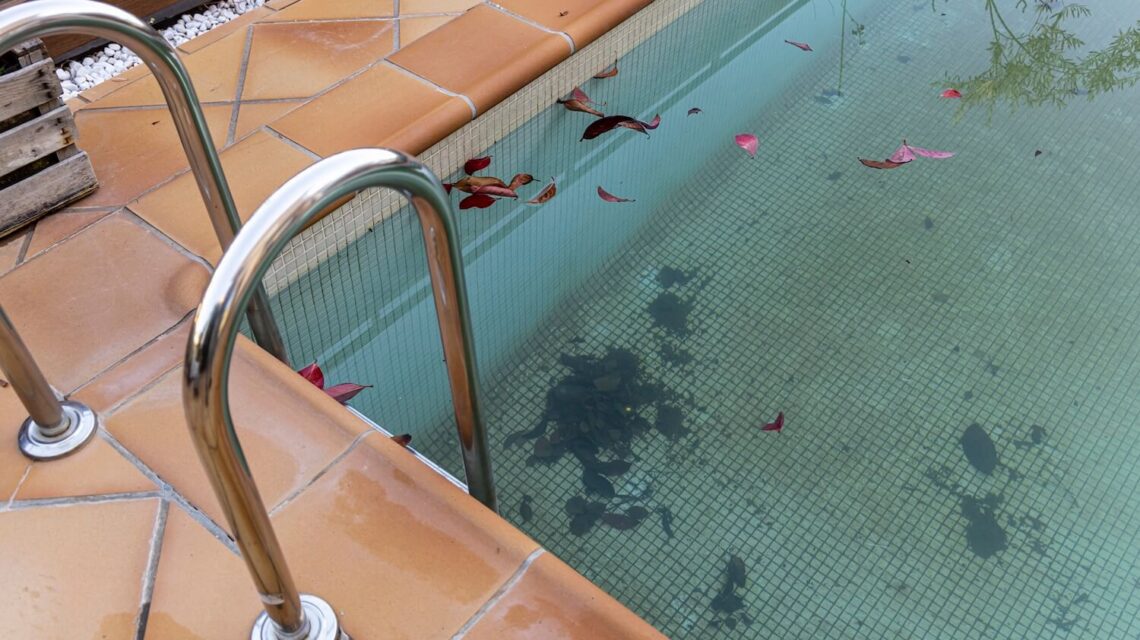Owning a swimming pool is an incredible luxury, offering a private oasis for relaxation, exercise, and entertainment. However, as many pool owners know, keeping a pool in perfect condition is no small feat. Without regular maintenance and care, a pool can quickly become a breeding ground for algae, leading to unsightly green or cloudy water and even potential health risks. Algae growth is not only visually unappealing but can also be a sign of deeper issues, such as improper chemical balances, filtration problems, or poor water circulation. This is where professional pool cleaning and maintenance services come into play.
To maintain the beauty and health of your pool, you need a systematic, proactive approach—something that is hard to accomplish on your own without professional help. Professional pool cleaners and maintenance providers are equipped with the skills, tools, and knowledge necessary to keep your pool clean, clear, and algae-free. By relying on experts, you can significantly reduce the likelihood of algae growth while also extending the lifespan of your pool and its equipment.
This comprehensive guide will take you through the key steps involved in preventing algae growth, detailing how professional pool cleaning and maintenance services can help. From understanding pool chemistry to ensuring optimal circulation, we’ll cover how these services can provide consistent results, allowing you to enjoy your pool without worrying about algae.
Why Is Algae Growth Such a Pool Management Problem?
Before diving into how professionals help prevent algae growth, it’s important to understand why algae are such a pervasive issue for pool owners. Algae are microscopic organisms that thrive in water, particularly in conditions that allow them to grow unchecked. Pool water, particularly when improperly maintained, provides the perfect environment for algae to multiply rapidly.
Several types of algae can affect a pool, each presenting its own set of growth challenges:
- Green Algae: The most common type of algae, green algae turn pool water cloudy or greenish and can form visible mats on the pool floor and walls. Green algae thrive in warm water and low chlorine levels.
- Black Algae: Black algae are more resistant to chlorine and are often harder to remove. They attach themselves to pool surfaces, creating dark blue or black spots that require aggressive treatment.
- Mustard Algae: A type of yellow-green algae, mustard algae thrives in areas with poor circulation and can accumulate in shaded areas of the pool.
- Red or Pink Algae: Less common, but still a concern, red or pink algae can form in pools that have high iron levels in the water.
Algae blooms are not only a nuisance, but they also contribute to clogged filters, poor water circulation, and unbalanced water chemistry. In the worst cases, they can lead to skin irritation, eye problems, and even infections. It’s easy to see why algae prevention should be at the top of every pool owner’s priority list.
The Role of Professional Pool Cleaning Services in Preventing Algae
Preventing algae growth requires more than just periodic skimming and adding chemicals. Algae thrive in pools that have poor circulation, an imbalance in water chemistry, or insufficient cleaning. Professional pool cleaning and maintenance services can address all of these areas and more, providing long-term protection against algae. Here are several key areas where professional pool services help in algae prevention:
1. Expert Pool Chemistry Management
The balance of chemicals in your pool is the first line of defense against algae. Pool water chemistry includes several key elements: chlorine, pH, alkalinity, and calcium hardness. When these elements are not in balance, algae can easily take hold.
- Chlorine Levels: Chlorine is a powerful disinfectant that kills bacteria, viruses, and algae spores. Keeping your chlorine levels between 1.0 and 3.0 ppm (parts per million) is essential for preventing algae. Professionals test the water regularly to ensure chlorine levels are where they need to be and can add chlorine or other chemicals as necessary.
- pH Balance: A proper pH balance (7.4 to 7.6) is critical for maintaining a healthy pool and ensuring chlorine works effectively. A pH that is too high or low can make chlorine less effective and allow algae to flourish. Pool technicians will test pH levels regularly and adjust them to keep your water balanced.
- Alkalinity and Calcium Hardness: Maintaining proper alkalinity (80-120 ppm) and calcium hardness (200-400 ppm) helps stabilize the water chemistry and ensures that pool surfaces are protected. Alkalinity acts as a buffer, preventing sudden pH fluctuations, while calcium hardness ensures that water is not corrosive or scaling.
Professional pool cleaners are highly skilled at managing these chemical levels, taking the guesswork out of algae prevention. With their expertise, you can rest assured that your pool is always in the optimal condition for algae prevention.
2. Comprehensive Cleaning Services
Algae don’t just grow on the surface of your pool; they can also thrive in areas that are difficult to clean, such as the walls, tiles, and pool floor. Without thorough cleaning, algae can quickly take hold and start to spread. Professional cleaners don’t just skim the surface—they get into every corner of your pool to remove algae and other debris.
- Brushing the Pool: Pool professionals use specialized brushes to scrub the walls, floors, and tiles of your pool. This action not only helps remove algae and other debris but also keeps the pool’s surfaces smooth, preventing algae from attaching itself in the first place.
- Vacuuming: Regular vacuuming is essential to remove dirt, leaves, and other debris that can serve as a food source for algae. Professional pool cleaners use powerful vacuums designed to remove both large debris and microscopic particles that might otherwise be missed.
- Cleaning the Skimmer and Pump Baskets: Keeping your skimmer and pump baskets clean is another essential step in preventing algae. These components trap debris that could otherwise clog the filtration system. Pool technicians regularly empty these baskets to ensure proper circulation and to prevent algae from having a place to take root.
These cleaning practices help keep the pool’s surfaces and equipment free from algae and debris, significantly reducing the risk of a bloom.
3. Optimizing Pool Circulation
Proper circulation is one of the most effective ways to prevent algae from thriving. Stagnant water is a breeding ground for algae, and poor circulation allows algae spores to accumulate and grow. Ensuring that water moves efficiently through the pool is crucial for algae prevention.
- Inspection of the Pump and Filter System: Pool professionals inspect the pump and filtration system regularly to ensure they are working correctly. If the pump or filter is clogged, damaged, or inefficient, water may not circulate properly, allowing algae to grow in the stagnant areas.
- Adjusting Jets for Better Circulation: Pool cleaners can adjust the pool’s return jets to ensure that water flows evenly throughout the pool, reducing areas of stagnation where algae might thrive. They may also adjust the pool’s flow rate to ensure optimal circulation.
A pool with proper circulation is much less likely to experience algae growth. Professional cleaners have the tools and knowledge to maintain optimal water flow, keeping your pool’s water moving and healthy.
4. Preventing and Treating Phosphate Buildup
Phosphates are nutrients that algae feed on, and high phosphate levels in your pool water can lead to rapid algae growth. Phosphates can enter the pool through a variety of sources, such as rain, debris, fertilizer, or even swimmer oils.
Pool professionals use specialized phosphate removers to eliminate excess phosphates in the water, preventing algae from getting the nutrients they need to grow. This step is particularly important for pools surrounded by plants or located in areas with frequent rain. By keeping phosphate levels in check, professionals provide another layer of protection against algae growth.
5. Regular Algaecide Applications
Algaecides are chemicals designed to prevent and treat algae growth. While chlorine does a great job of killing algae, it may not be enough to prevent future blooms, especially in pools that are frequently exposed to sunlight, heat, or heavy usage.
Pool cleaning professionals often apply algaecides as part of their regular maintenance services. Algaecides work by disrupting the algae’s cellular processes, preventing it from reproducing and spreading. By applying algaecide at regular intervals, professionals provide ongoing protection against algae, especially in pools that are more prone to algae growth.
6. Tailored Maintenance Plans
No two pools are alike, and the maintenance required can vary greatly depending on factors such as pool size, location, usage, and even the type of pool (in-ground or above-ground). Professional pool cleaners can create a customized maintenance plan tailored to your pool’s unique needs.
- Weekly, Bi-Weekly, or Monthly Service: Depending on the needs of your pool, professionals can provide weekly, bi-weekly, or monthly service. For high-use pools or pools in warmer climates, more frequent visits may be necessary to ensure algae doesn’t have a chance to grow.
- Custom Chemical Treatment: Professionals assess your pool’s specific water chemistry needs, factoring in local conditions and usage patterns to determine the best chemical treatments and application schedule. This personalized approach ensures that your pool remains algae-free without the risk of over- or under-treating.
A customized maintenance plan allows you to rest easy, knowing that your pool is getting the attention it needs to remain algae-free throughout the year.
Conclusion: The Benefits of Professional Pool Maintenance in Algae Prevention
While it may be tempting to handle pool maintenance on your own, professional cleaning and maintenance services offer unparalleled benefits in preventing algae growth. From expert chemical management and thorough cleaning to optimized circulation and customized service plans, professional pool cleaners provide a comprehensive approach to algae prevention that simply cannot be matched by DIY methods.
By investing in regular professional maintenance, you not only keep your pool crystal clear and algae-free but also protect the longevity of your pool equipment, improve water quality, and ensure a safer, healthier swimming environment for your family and friends. So, if you want to avoid the hassle of battling algae, consider hiring a professional pool cleaning service to keep your pool in peak condition year-round.




